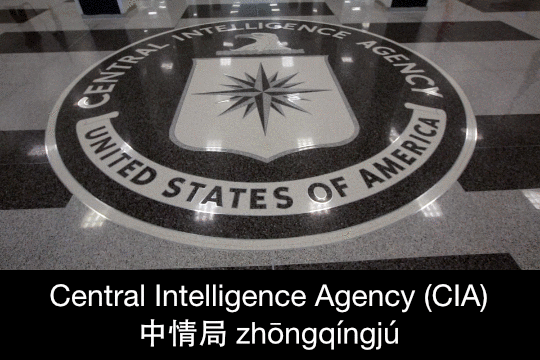Former CIA station chief in Beijing on China – China’s latest top news
Jeremy Goldkorn’s selection of the top stories from China on November 7, 2017. Part of the daily The China Project newsletter, a convenient package of China’s business, political, and cultural news delivered to your inbox for free. Subscribe here.

Former CIA station chief in Beijing on China
NPR has published an interview with Randy Phillips, a business consultant who served in the CIA for 28 years, including a spell as “CIA station chief at the embassy in Beijing — in other words, the head spy.” A few excerpts:
- On working with Chinese intelligence agents: “You know, I think there is — I use that term professional respect, or otherwise, honor among thieves, maybe — of having respect for your counterparts, that they, too, are trying to serve their country. And you try to find the maximum number of areas that you could possibly cooperate on issues.”
- On Chinese companies buying innovative American firms: “Chinese firms can utilize the open systems of the U.S. and the EU and elsewhere, whereas getting the access here to do the same is either totally blocked off or is, for all intents and purposes, blocked off because of regulatory action that keeps them out.”
- On Trump’s visit to China this week: “He’s bringing a great team with him. I just — you know, from everything I’ve seen, it’s not quite sure that there is a lot of listening going on.”
What China wants from Trump
We have included links to several stories about the American president’s state visit to China on November 8–9 below, but I’d recommend these two:
- Xinhua News Agency’s top story on its Chinese website today is titled “Join hands to answer the ‘future questions’ of the Sino-American relationship.” The article is a saccharine and highly positive review of American presidential visits since Nixon met Mao — with the, no doubt intentional, omission of Obama.
- The Xinhua piece concludes with China’s preferred verbiage to describe U.S.-China relations: a new type of international relations, mutual benefits, and win-win cooperation.
- James Mann, author of the 2008 book The China Fantasy: Why Capitalism Will Not Bring Democracy to China, has a piece in the Daily Beast about Trump’s visit, which argues that “China could well try to get Trump to agree to some new language about ‘core interests’” — in other words, acknowledge the Chinese position on issues such as the status of Tibet, Taiwan, and dominion over the South China Sea.
I personally would be surprised if Trump agrees to Beijing’s concepts of “core interests.” However, the Chinese will probably get some of the language they want about “a new type of international relations” and “win-win” — Secretary of State Rex Tillerson set a precedent during his visit to China in March.
Chinese social media from the 1960s
In 2011 — when the Twitter-like Weibo was at the height of its influence in Chinese society and a lively platform for caustic political commentary, gossip, and the public airing of grievances — a Chinese friend of mine who had misspent his youth as a Red Guard took one look at it and said: “big character posters!” (大字报 dàzì bào). These were the hand-written denunciations pasted on walls across the country that accused local officials, colleagues, friends, and even family members of counter-revolutionary crimes or behavior.
Harvard’s Fairbank Center for Chinese Studies has curated what may be the world’s first exhibition of big character posters, opening on November 9 with a panel discussion.






